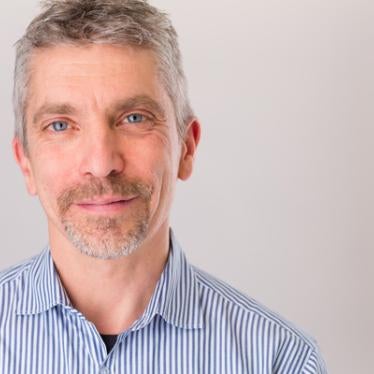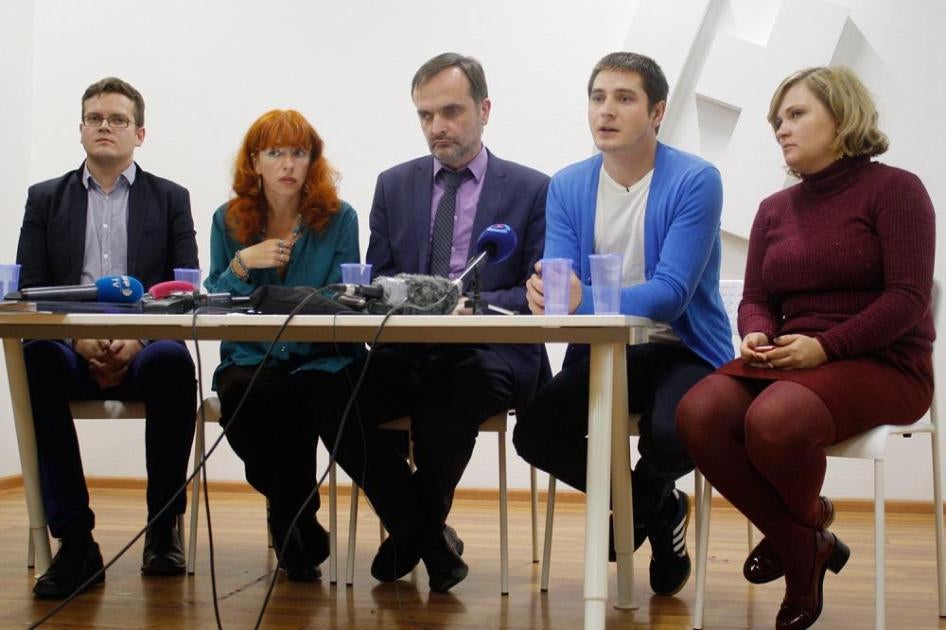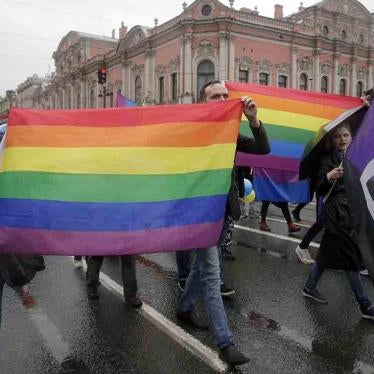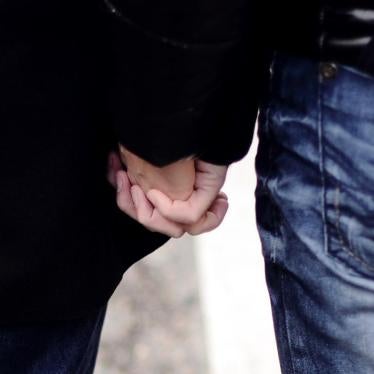I was recently invited to a private prescreening of David France’s new documentary Welcome to Chechnya. The film focuses on activists working day and night under extreme duress to rescue complete strangers from a violent purge of gay men in Chechnya.
I sat with the director after watching the film, notebook in hand, to give him feedback. But instead I found myself quite unable to speak. And despite my best efforts to maintain professional composure, I sobbed. And sobbed. Instead of our planned discussion, the director found himself looking for tissues, bringing me water, giving me comfort. Later, on the sidewalk, I called a friend, himself a filmmaker. “I guess the film is effective,” he said.
My job is to ensure accurate reporting of human rights abuses. At Human Rights Watch, we are in the business of fact checking and truth telling. And I already knew every gruesome detail of Chechnya’s anti-gay purge of 2017, documented in our own report They Have Long Arms and They Can Find Me, and portrayed so vividly in this remarkable documentary.
While I knew the facts, the documentary brought them into focus by portraying compelling individual stories of courage, despair and resilience in the face of immense suffering. In her memoir, The Courage of Strangers, Jeri Laber, a founding member of Human Rights Watch, writes about the tension between her need to be objective and dispassionate when documenting human rights abuses, and the empathy that drives her work:
“Sometimes, though, as I am matter-of-factly editing a report, inserting commas between sequential words like ‘beheaded, mutilated, and raped,’ the hideous nature of the material creeps up on me, taking me by surprise, and I am sick at heart. I find myself wondering: What have I become?”
What do we know about the anti-gay purge in Chechnya? Between February and April 2017, Chechnya’s law enforcement and security officials rounded up dozens of men on suspicion of being gay, held them in unofficial detention facilities for days, humiliated, starved and tortured them.
The security officials forcibly disappeared some of the men. Others were returned to their families barely alive from beatings. Their captors exposed them to their families as gay and encouraged their relatives to carry out honour killings. Chechen leader Ramzan Kadyrov denied the round-ups, despite compelling evidence that top-level local authorities in Chechnya sanctioned them. No one was held accountable, so it’s no surprise that another round of these purges took place a year later.
What happened in Chechnya is an extreme case, indirectly related to Russia’s 2013 “gay propaganda law”. The passage of the law saw an uptick in homophobic violence in Russia, including by vigilante groups who were sufficiently emboldened to film and post online their denigration and abuse of young gay men. Official hostility toward “non-traditional sexual relations” predictably led Chechen authorities to conclude that gay men could be rounded up, disappeared and tortured with impunity.
Welcome to Chechnya focuses on the unsung heroes of this horror story – members of the Russian LGBT Network and the Moscow Community Center for LGBT+ Initiatives, who provided the only way out for people desperate to escape persecution. The film also documents the experience of lesbians, whose horrific ordeals mostly take place in the private sphere, perpetuated by family members behind closed doors. Their families control their lives, making escape extremely difficult and perilous. In a deeply disturbing sequence, the documentary tracks the trajectory of one young woman who flees for her life, pursued by immediate family members.
David France has done justice to the outrage in Chechnya, facing the horror, but also the extraordinary courage of Russian activists working against all odds to get people to safety. He deftly avoids sensationalism or a one-sided portrayal of individuals as victims.
In her essay Regarding the Pain of Others, Susan Sontag writes: “The images say: ‘This is what human beings are capable of doing – may volunteer to do, enthusiastically, self-righteously. Don’t forget.” David France’s documentary stands as a stark reminder of “what human beings are capable of doing,” and why we need human rights protections. It is also a tribute to the courage of strangers.












